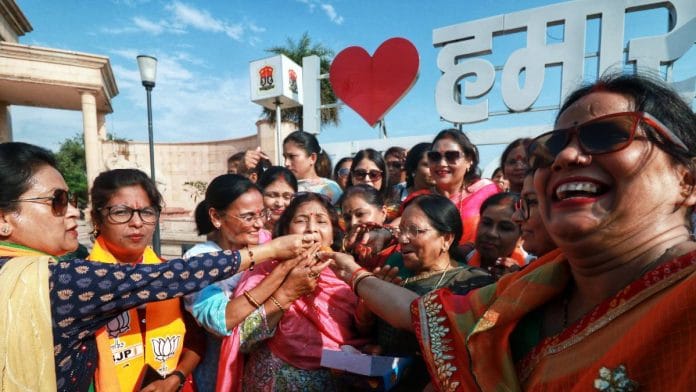Thank you dear subscribers, we are overwhelmed with your response.
Women’s reservation bill is finally passed after it was first conceived and presented in
H D Deve Gowda Government in 1996 through the 81st constitutional amendment bill.
It was a long and arduous fight for women as it is 27 years since first conceptualized and introduced in the highest congregation of our country.
The bill was passed in 2010 in Rajya Sabha in UPA-II with equivalent form that is 33% reservation in Lok Sabha, Rajya Sabha and state assemblies.
No OBC quota and no quota within quota.
But it failed to pass the test of Lok Sabha at that time because of fear of government being toppled by OBC parties like RJD & SP.
This time it has been passed in both the houses with little or no opposition in Rajya Sabha and very less resistance in Lok Sabha.
With 454 members of the Lok Sabha supporting the Constitution (One Hundred and Twenty Eighth) Bill 2023, the constitutional requirement of “two-third majority of the members present and voting” was easily met.
Only two members, the All India Majlis-E-Ittehadul Muslimeen’s Asaduddin Owaisi and Syed Imtiyaz Jaleel, had opposed the Bill.
The voting process, during which Mr. Modi was present, took nearly two hours as members voted manually, using paper slips.
The eight-hour long debate witnessed members from the Treasury and Opposition benches, led by the Congress, engage in a battle over who should get credit for the landmark Bill and on the question of having a separate quota for women belonging to other backward classes (OBCs).
Home Minister Amit Shah assured the House that the government would rectify any shortcomings in the future. “You support the Bill and reservation will be guaranteed,” Mr. Shah told Opposition members.
In the context of the ongoing discussions about the Women’s Reservation Bill, it is essential to understand the historical background and the implications of such legislation on various communities.
The Congress made a U-turn from its own 2010 position, with its leader Sonia Gandhi, who was the first speaker in the debate, leading the demand for a separate quota within quota for OBCs after conducting a caste census. She also insisted that there was no need to delay implementation of the Bill by linking it to a delimitation exercise that is frozen till 2026.
“It is the demand of the Congress to implement the Bill immediately… But along with that, provision should be made for reservation for SC, ST and OBC women,” she said.
Strongly countering the demand for a separate quota for OBCs, the Home Minister asserted that the BJP not only had the highest number of OBC lawmakers across the political spectrum, but also a Prime Minister from the same community, referring to Mr. Modi.
Giving a detailed break-up, Mr. Shah said that 85 BJP MPs, 29% of its total, were OBCs, adding that as many as 29 Ministers were also from backward communities.
Everything is same as of the bill that was passed in 2010 in UPA-II in Rajya Sabha but two conditions of census and delimitation is put into this bill which will make it difficult to implement in the immediate future.
So is it a well-intended effort by Modi government or just a political ploy to woo the women’s voter who are 50% of our population.
The bill that was passed in Rajya Sabha on Mar 9,2010 is like that of what is passed in 2023 in terms of the following aspects.
- It’s scope is not limited to parliament and state assemblies but it can be extended to municipal corporation, panchayat’s etc.
- There was no provision for quota within quota at that time and same is the case this time.
But this time two condition of delimitation (due in 2026) and census which was supposed to happen in 2021 but not yet carried out is inserted before political parties will be able to implement it completely.
Who stops them to give ample tickets to the women if they want to do so.
One should also not doubt the intention of present dispensation whether they are Bonafede as every political party will look for its interest.
It seems that this time the efforts are made to keep it away from any political entanglement and legal litigation not only from ruling entity but across the gamut of political spectrum.
I think it is a welcome move but whosoever is going to be in power in 2024 must try to practical Ise it as and when right scenario arises.
The Nari Shakti Vandan Adhiniyam is a historic legislation which will further boost women empowerment and will enable even greater participation of women in our political process and probably should bring betterment and upliftment of society.
These pieces are being published as they have been received – they have not been edited/fact-checked by ThePrint.


